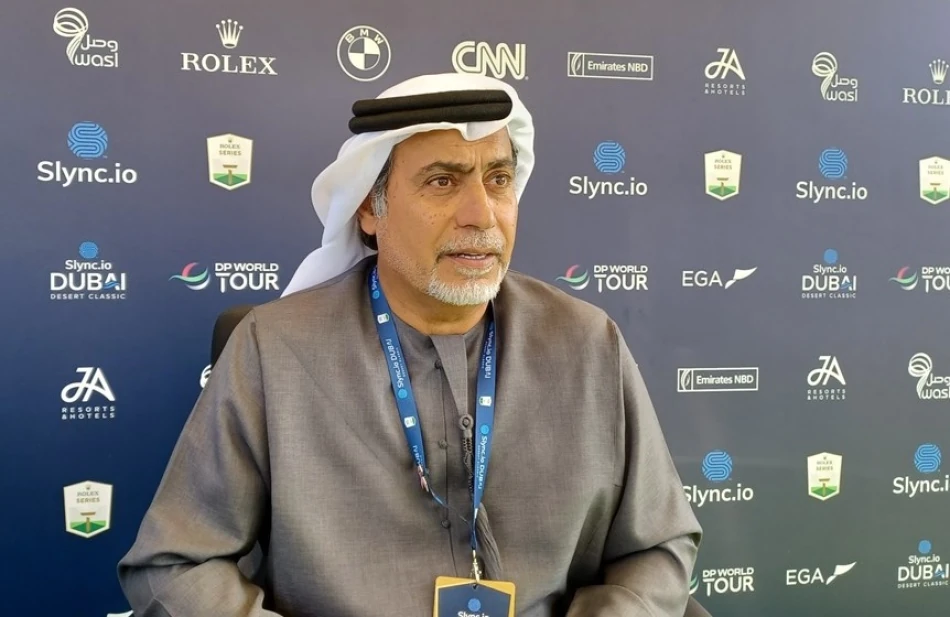
Hashemi Appointed as Vice President of the Asian Golf Federation
UAE's Strategic Golf Diplomacy Gains Continental Foothold as Emirati Official Wins Key Asian Role
Major General Abdullah Al Sayed Al Hashemi, Vice President of the UAE Golf Federation, has secured the vice presidency of the Asian Golf Federation with a decisive 6-vote majority, marking a significant expansion of Emirati influence in regional sports governance. The appointment positions the UAE to leverage its growing golf infrastructure and hosting capabilities to reshape the sport's development across Asia and the Arab world.
A Victory Rooted in Strategic Vision
Al Hashemi's election reflects more than just individual recognition—it represents the UAE's calculated approach to sports diplomacy. The country has systematically invested in world-class golf facilities, from the Emirates Golf Club to the Greg Norman-designed courses that dot Dubai's landscape, creating a foundation for regional leadership that extends beyond mere infrastructure.
The timing of this appointment is particularly strategic, coming as the Asian golf market experiences unprecedented growth. Countries like Thailand, South Korea, and Japan have seen explosive increases in golf participation, while emerging markets across Southeast Asia present untapped potential for development programs.
Bridging Arab and Asian Golf Markets
Regional Integration Strategy
Al Hashemi's stated focus on building "new bridges of cooperation between the Asian Federation and Arab federations" signals a deliberate effort to integrate traditionally separate sporting ecosystems. This approach mirrors the UAE's broader economic strategy of positioning itself as a bridge between East and West, leveraging geographic and cultural advantages to create new opportunities.
The emphasis on increasing regional tournaments could prove transformative for Arab golfers who have historically faced limited pathways to international competition. Unlike the well-established European or American circuits, the Asian tour structure offers more flexibility for emerging markets to host events and develop local talent.
Infrastructure and Talent Development
The UAE's investment in golf infrastructure provides a template that other Arab nations could follow. Saudi Arabia's recent push into golf through LIV Golf and massive course development projects creates natural synergies with the UAE's more established programs. Qatar's sports diversification efforts ahead of and following the 2022 World Cup also align with this regional golf development vision.
Market Implications and Growth Potential
For the golf industry, Al Hashemi's appointment represents access to significant untapped markets. The Arab world's young demographics and increasing disposable income in Gulf states create ideal conditions for golf expansion, particularly as the sport seeks to diversify beyond its traditional Western strongholds.
The announcement that Al Hashemi will officially begin his duties after the Asia-Pacific Championship in Dubai this October demonstrates the UAE's intention to use major tournaments as platforms for broader regional initiatives. This approach has proven successful in other sports, where hosting rights translate into governance influence and development opportunities.
Challenges and Competitive Landscape
Al Hashemi's acknowledgment that the coming period is "full of challenges" likely refers to the complex dynamics within Asian golf. Established powers like Japan and South Korea maintain strong traditional influence, while China's massive market potential creates its own gravitational pull for resources and attention.
The success of this Arab-Asian golf integration will largely depend on the UAE's ability to deliver tangible results—increased tournament prize pools, better player development pathways, and enhanced media coverage for regional events. Unlike diplomatic victories that can remain largely symbolic, sports governance requires measurable outcomes that directly impact athletes and national programs.
As the Asian golf landscape continues evolving, the UAE's strategic positioning through this appointment could prove pivotal in determining whether Arab nations become significant players in the sport's global development or remain peripheral participants in an increasingly competitive market.
Most Viewed News

 Sara Khaled
Sara Khaled






